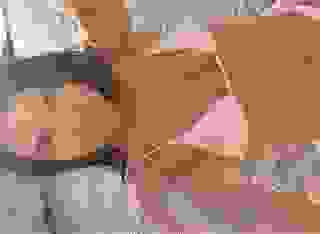- Non-Erotic
- The Seven
Note: You can change font size, font face, and turn on dark mode by clicking the "A" icon tab in the Story Info Box.
You can temporarily switch back to a Classic Literotica® experience during our ongoing public Beta testing. Please consider leaving feedback on issues you experience or suggest improvements.
Click hereBraving frigid winds and driving snow, Nia marched up Washington Street. The tails of her tattered scarf fluttered behind making her appear to strain against a knit leash held by Mother Nature's fury. Although repeatedly delayed by beggars seeking spare change, she was determined to reach the shelter in time to help the others serve dinner—and it looked as if she just might make it.
Nia was a magnet to those less fortunate. Her welcoming demeanor and gentle disposition drew people to her, and her eyes held them. They just knew she'd help, and she always came through—so much so that she seldom had enough left over to make her own ends meet. Case in point: over the course of ten city blocks, she'd given away the last fifty dollars of her most recent paycheck. Thus, it'd be at least another month before she could even think about getting her phone service reconnected.
The shelter would undoubtedly be filled to capacity, and then some. It was, after all, the busiest week of the year. On Christmas Eve and Christmas Day, many of the city's civic organizations served the homeless, but the following week such charity fell away like discarded ribbon and wrapping paper. Having salved its collective conscience for another year, the haves returned to their comfortable lives. The have-nots were nowhere near as fortunate.
Intensely aware of the trend, the struggling Nguzo Saba shelter planned accordingly. While community outreach took place year 'round, its most concerted effort always coincided with the week following Christmas—when most folks were preoccupied with college football bowl games, gift returns, and making plans for New Year's Eve.
As she turned the corner, Ujima's lilting voice called, "Nia, where have you been? We've been worried!"
"The usual," Nia sighed, taking Ujima's gloved hands in her own and kissing each cheek.
"So you're broke." The older woman gave a knowing smile.
Nia nodded. "I can't help it, sister. They're in such dire need."
"We'll talk to Ujamaa after dinner. He'll have some ideas." She snorted, "My brother always has ideas."
The women, not really sisters, locked arms and trudged the remaining two blocks to the shelter. Ujima's optimistic outlook buoyed Nia's spirits. As the problem solver of the bunch, Ujima often worked closely with Kuumba. They made a formidable team, and most suspected that their blossoming romance was much deeper than they let on. Passion for a cause often brought divergent people together, and those two were about as different as two people could get. It made for some spectacular arguments as well as some breathtaking accomplishments.
Kuumba's irreverence and seemingly cavalier attitude often rubbed the shelter's founder, Umoja, the wrong way, but no one could dispute that Kuumba was the most effective fund raiser they'd ever known. His good looks opened doors, and his charm melted icy hearts. The only college educated member of their diverse family, Kuumba was considering a run for city council next fall. There, he believed, he could do the most good for a seriously disenfranchised population. Still, Umoja made no secret of the fact that he questioned his daughter's choice in a potential mate.
Ujima held open the shelter's battered outer door, and the welcoming warmth and mouth watering aromas enveloped Nia, jarring her from her thoughts. As they stripped off their layered outer wear, Kujichagulia rolled toward them with a steaming foam cup of hot chocolate in each of his power wheelchair's cup holders.
"Thank you, Kuji!" Nia exclaimed, ruffling the boy's mop of already ruffled red hair and earning a gloriously sunny, freckled grin. "How's the leg today?"
Kuji pecked at his voice synthesizer until the small electronic device emitted a tinny response. "Not so bad," he typed, but his eyes told a different story. The surgery to release his knotted hamstring was considered elective, and no one had yet been successful in convincing Medicaid that it was medically necessary. Kuji, however, was his own best advocate, and Nia had no doubt he'd eventually prevail. His mother, Imani, planned to take him to meet with their legislative delegates right after the first of the year. Her stunning and vulnerable beauty coupled with Kuji's engaging smile were certain to win the day.
"C'mon! Let's eat," Ujima coaxed. "Everyone's waiting."
Nia gasped as she turned the corner and stared into the shelter's main gathering room. At least three hundred people of all ages, shapes, sizes, and colors waited for a free meal. She hoped there'd be enough food. Kuumba spent most of the previous month soliciting donations from grocery stores and restaurants, but the last report on the inventory was not encouraging. The area businesses preferred to donate to the higher profile organizations, often netting themselves some free advertising in the inevitable warm, fuzzy news reports spawned by such events.
The media tended to ignore their humble shelter. It was just not sexy enough for coverage. There were no celebrities graciously giving of their holiday time. No big name corporate sponsors. Ujamaa, who now managed the shelter for his aging father, spent every spare moment trying to form alliances with other entrepreneurs but most often met with derision in spite of his sincere attempts. His ideas were sound, but most found his gruff manner somewhat off-putting. Ujamaa envied Kuumba's easy way with people, and harbored more than a little concern about his sister's future with the smooth talking man.
Nia followed Kuji as he plowed his way through the crowd to the serving tables. He was one impressive kid, she thought. Kuji allowed no one to define him by his disabilities. Even Imani admitted that her son's innate strength carried her through the toughest times, fortifying her faith in humanity. For a child who could not speak, his message deeply affected all who were fortunate enough to make his acquaintance.
The shelter had several dozen regulars, but the number of new faces always took Nia by surprise. Their stories varied, but it all boiled down to a dysfunctional social services system. Most really wanted to get on their feet—or back on their feet—and all were expected to help in exchange for the shelter's hospitality. That seemed to set Nguzo Saba apart from the larger, more institutional shelters.
While the circumstances were dire, the mood was not. Smiles lit a good many of the faces. All were clothed, sheltered—at least for the moment—and about to be fed. They lived for today, not knowing what tomorrow would bring. Yet they had kind words and often breathtaking depths of generosity for one another. Most literally would give you the shirts off their backs. Nia had witnessed it on many occasions.
Earlier, Imani had taken the toddlers to the showers while their parents or older siblings rooted through the boxes of clothing donations. Socks, of all things, were typically in shortest supply but this year Kuumba managed to acquire two hundred brand new pair. They were irregulars, but who cared? It made for an even more festive atmosphere. Socks. Plain white tube socks. Simple things, indeed.
Umoja, in a rare display of frivolity, attempted to entertain the hungry and impatient children with makeshift sock puppets. The sight of the perpetually serious patriarch being so silly struck Kuji as hilarious, and he repeatedly tapped the "Whoop!" button on his synthesizer. This, in turn, caused the children to giggle—something the sock puppets had been unable to achieve, much to Umoja's chagrin.
Now that the seven of them were finally together, dinner could be served. The children always ate first, ensuring that they at least had full bellies should the food not last. Imani and Nia led the youngest to the front of the line and began filling their plates while Ujima passed out cartons of chocolate milk, another unexpected treat. It had been uncharacteristically donated by the public school system since it would pass its expiration date before school resumed following the holidays.
When all those under ten years of age had been served, a hush fell over the crowd. Imani's voice, crystal clear and achingly beautiful, began an improvised song of thanks for the fellowship and the bounty they were about to share. Even the children paid rapt attention. Out of the corner of her eye, Nia caught Kuumba as he surreptitiously wiped his eyes.
Kuji beamed with pride as one by one, the crowd stood in reverent silence. When Imani's song ended, Umoja spoke very briefly: "Friends, we share this feast in the hope that our community will continue to give generously, care deeply, and grow in harmony."
He gave a nod to the kids, and as one they enthusiastically dove into their dinners. The elderly were served next, and Nia helped to carry the plates of those who used crutches or walkers. The others engaged either in serving or in the kitchen, and she could hear Ujamaa playfully chiding Kuumba for dishing out meager portions. Perhaps he was warming to his future brother-in-law. Ujima had confided that an engagement was imminent, but she'd sworn Nia to secrecy.
When it became apparent that the food was indeed in short supply, Kuumba began making phone calls to bakeries, pizza shops, fast food joints—anything to supplement the fare. He told each, and truthfully, that his first calls went to the media in the hopes that the potential for free publicity would spawn donations not otherwise forthcoming. It worked, for within the hour they accepted three deliveries containing fifty loaves of day-old bread, two dozen cheese pizzas, and several paper-wrapped bundles of hamburger patties.
Umoja made sure to get a photo with each donor beneath the shelter's sign and promised to send a copy along with a receipt and letter of appreciation that could be used for PR if desired. Kuji posed for the photos, as well. He knew all about the pity factor, and he had no qualms about using it if it would help feed more people. No one need know that the back of his t-shirt read: Poster Child.
When everyone had been fed, the crowd began to thin. Those having a place to sleep departed to make room for others to claim some floor space. Most helped with the clean up, folding the tables, and stacking the chairs. Umoja distributed the vinyl mats that he bought for fifty cents apiece when the local camping supplier went out of business last spring. The purchase had gutted the shelter's meager bank account, but it was worth it to have something to pad the cold, hard floor.
Imani read the children a bedtime story in a small, adjacent room where they'd sleep. It was just slightly warmer inside, and Ujima had painted nursery rhyme characters on the walls for a homey touch. The kids, having so little stability in their young lives, felt safe there. She ended with a soothing lullaby and let a colorful curtain drop across the doorway as she exited.
Kuumba extinguished the lights in the main gathering room, and the noise level dropped to a low hum of quiet conversation. A few of the guests played cards, but most curled up to sleep. In the kitchen, the seven sat around a rickety wooden table and took stock of the shelter's assets. Allowing only a few moments to dwell upon the success of the evening, they quickly moved on to discussions about how to do it all again tomorrow—and the tomorrows after that. It was never ending, but this one week always presented more of a challenge. All were tired of the constant struggle, but quitting was simply not an option.
Nia spoke to Ujamaa about her deepening financial woes, and she finally accepted his invitation to move into the vacant back room. Her board would be a pittance, augmented by some bookkeeping in the evenings. A few of the regular children needed of some tutoring, which Nia would handle as well.
When they'd divvied up the morning's tasks and were about to retire, Kuumba stood. "Umoja," he said in a markedly formal tone that instantly grabbed everyone's attention, "I have asked Ujima to marry me. We would like your blessing."
No one moved. All eyes were glued to Umoja, who slowly rose and circled the table. He placed his hands on Kuumba's broad shoulders and looked deeply into his ebony eyes. Nia saw a bead of sweat trickle down the side of Kuumba's neck, betraying the man's seeming calm. Ujima held her breath. Apparently seeing what he needed to see, Umoja nodded to himself and finally spoke, "I will be proud to call you my son."
All breathed a collective sigh. Hugs and handshakes were followed by tears and laughter, subdued so as not to wake their guests. An announcement would be made tomorrow evening and preparations would begin for a seventh night ceremony. An exceptional end to an exceptional week of exceptional work done by exceptional people.
"How is she?" Nia asked as she entered the hospital's small cafeteria, her features etched with worry. The instrumental holiday carols echoing from speakers in the water-stained ceiling, interrupted by an occasional page, did nothing to lighten the atmosphere. Dinner hours ended over an hour ago, and only the vending area offered refreshment through the night. The desolate emptiness only fueled her feelings of despair.
Ujamaa stared into a cup of coffee long since gone cold and shrugged. "She is concerned for the baby, of course, but the doctor says everything will be fine. Kuumba hasn't left her side."
"But the council meeting's in less than an hour! He can't miss that vote."
"Yes, I know. He will go. At the last possible minute, he will go." Ujamaa shook his head, "To think I doubted he'd be a good husband to my sister."
Nia nodded, "Kuumba's a good man—and he will make a wonderful father."
"He blames himself, you know, for the injuries. Lord only knows why. And Kuji?" he asked in a whisper. "Will he survive?"
"It's too soon," she croaked, fighting back tears. "The doctors say it could go either way. Imani wanted to be alone, so I came here. Where's Umoja?"
"He went back to the shelter," Ujamaa replied. "Said he felt useless here. I suspect he didn't want anyone to see him cry, and I can't say as I blame him. I'm gonna to join 'im soon. There's not much I can do here, after all, and he'll need help serving dinner. People will still come, y'know. Our guests aren't likely to have seen the news."
"Excuse me," a young man interrupted. "I'm from the Gazette. May I ask you a few questions?"
Ujamaa snorted as he rose, the metal legs of the chair scraping the brittle linoleum. "You've got a lotta nerve," he growled.
Nia placed her hand on Ujamaa's arm to calm him. Hostility would not help their cause, and their adversaries would be eager to portray them as violent. She turned to the reporter and gestured to an open chair. "My name is Nia. I'm from the Nguzo Saba Shelter. What would you like to know?"
He glanced nervously at Ujamaa, coughed into his fist, and stammered, "Well, for starters, could you give me your take on what happened downtown a few hours ago?"
Ujamaa, rather than sit back down, took his leave. "I'll be back later if Umoja doesn't need me. My father is a stubborn man. He'll beg on behalf of others but won't ask for help for himself."
"I'll be here through the night. Get some rest. You can relieve me in the morning. Hopefully, we'll have some good news by then – on several fronts." She handed Ujamaa his coat and stood on tiptoe to kiss his cheek before turning back to the reporter.
"Okay," Nia forced a wan smile. She replayed the scene in her mind and tried to remove the emotion from her voice as she recounted the tumultuous events. "A group of about fifty people were demonstrating against the city's proposed seizure of properties along Washington Street, including our shelter, to make way for a shopping center.
"We – Ujima and Kuji and I – arrived around noon. I think you know Kuji, don't you? Aren't you the one who wrote the story about his volunteerism award last summer?" Seeing the alarm in his eyes as the reporter put two and two together, Nia softened her tone somewhat. "Anyway ... we joined those who were chanting. We had a permit. I mean, all the proper procedures were followed. Kuumba insists on it. When the council members began to arrive for the meeting, our chanting grew louder. Someone must've felt threatened, or perhaps just inconvenienced, and called the police.
"When they got there, they just made us back away from the doors a bit. It was all quite civilized up 'til that point. One of the protesters, a blind man – a Vietnam vet who I've seen at our shelter many times – tapped an officer's leg with his cane. It certainly seemed accidental to me, but the officer, apparently thinking the cane a weapon, whirled around and disarmed him. This angered the man's dog, and that's when all hell broke loose."
Nia took a deep breath, willing herself to remain calm. "The cop used his pepper spray on the dog. It caught Kuji, whose wheelchair was right behind the dog, square in the face and he began to choke.
"I tried to get to Kuji, but the cops were pushing people away. The blind man was now without both his cane and his dog, and Ujima rushed to help him. She bumped into another of the police officers who knocked her roughly to the sidewalk without even looking in her direction. That was when her water broke and she screamed.
"Things could've gotten really out of hand, but Kuumba arrived just then. He knelt alongside Ujima and shouted for someone to call an ambulance. It's their first child, you know.
"By the time I pushed my way through to Kuji, he was having a seizure. Another man – I don't know who. It's a blur. – helped me get him out of his chair and lay him down on the sidewalk. I put my coat under his head.
"I've seen seizures before, but nothing like that. It went on and on and on. Kuji can't speak, as you know, but he was making these horrible noises – gasping and gurgling. There was blood coming from one of his ears. And then, he just stopped. I was so relieved that the seizure was over that I didn't even notice he wasn't breathing until he started turning blue." Nia shuddered with the memory. "I yelled for help, and one of the EMTs came over. They'd just finished loading Ujima into the ambulance and were ready to pull out."
The reporter scribbled as fast as he could, but he held up a hand for her to pause while he caught up.
"He's only twelve, you know. Just twelve." Nia shook her head. "Life has dealt him some really nasty cards, and yet he spends all of his time helping others. Anyway ... since he still had a pulse, they just used that mask and bag thingy on him. When the second ambulance showed up, the first took off. By then, Ujima was having contractions."
"How are they doing?" the reporter interrupted.
"Ujima will have the baby tonight. There is risk involved, of course, because it's early, but the doctors are optimistic. Kuumba plans to leave her just long enough to attend the council meeting and vote. Kuji ..." Nia couldn't stop the tears this time. "Kuji clings to life. He is on a ventilator, and they ... they just don't know yet."
She dried her eyes on a napkin and continued, "Anyway ... out of respect for those injured, especially since one of them is the wife of a council member, the meeting was postponed until this evening. And now," Nia finished, "you know as much as I do."
Kuumba poked his head into the cafeteria, but quickly withdrew when he saw the reporter sitting at the table with Nia. Kuumba rarely avoided the press, but Nia understood why he wished to do so now. Media attention could no longer influence tonight's vote.
"Would you please excuse me now?" Nia dashed out of the cafeteria before the reporter could reply.
"Kuumba!" she called down the corridor.
He stopped and turned. "Hey. I'm on my way to the meeting. Where's Imani? I wanted to touch base with her before I left."








